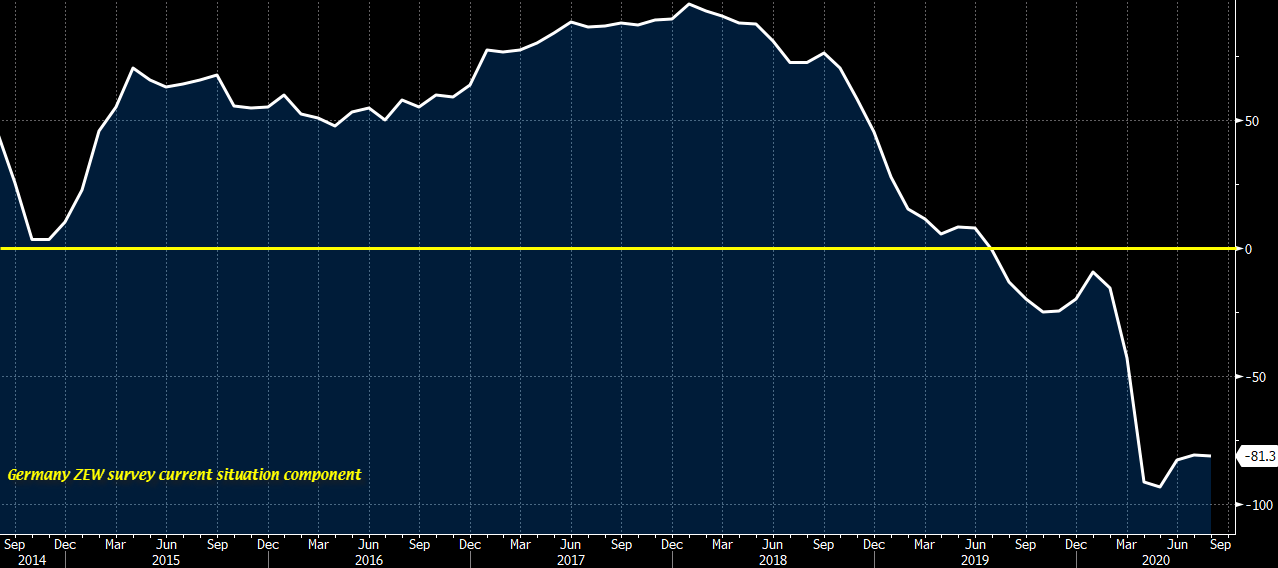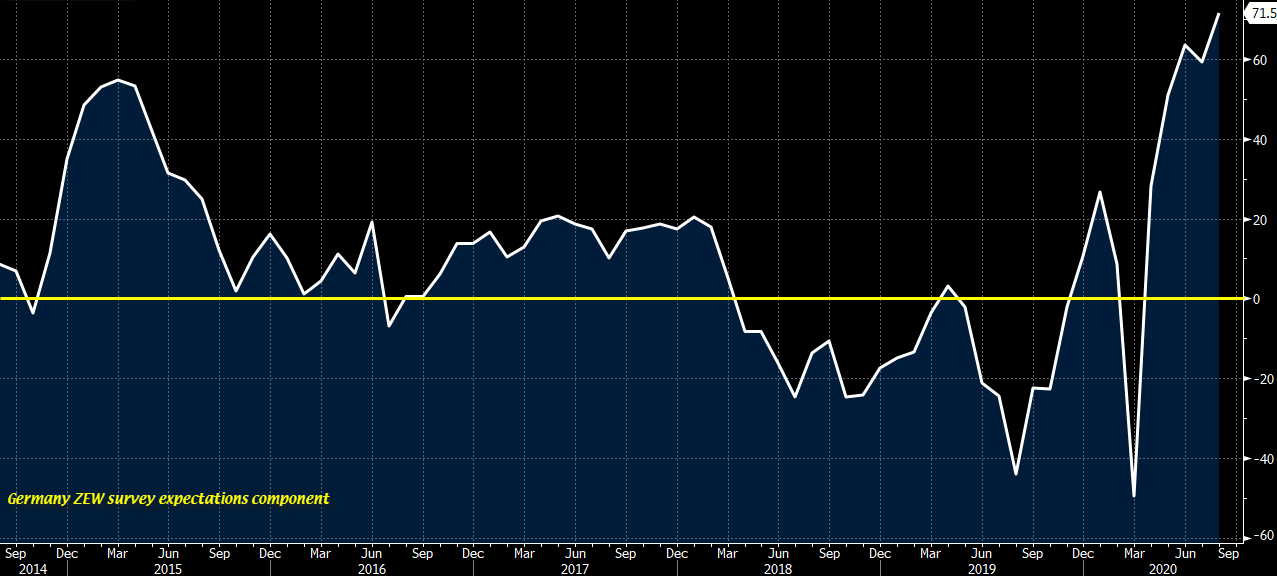German ZEW survey data highlights a broader longer-term theme for markets to consider
 Read full post at forexlive.com
Read full post at forexlive.com
Will the economic recovery eventually live up to the hype?


One of the above charts is not a “V”. And therein lies a potential longer-term problem that market participants will have to consider down the road.
As we move on from Q2 to Q3, the expectation is that ‘the worst is behind us’ when it comes to the pandemic and the economic fallout from the virus crisis.
While that will certainly be true, what it doesn’t say is that the economic recovery and the path towards “normalisation” may perhaps take much longer than anticipated.
Most recent economic surveys have shown a rapid bounce back in terms of “expectations”, “outlook”, or “optimism” but relevant data that measures economic conditions at the present time have failed to really live up to those hopes for the most part.
Sure, the economic situation now is much better than in April. However, the rate of recovery from April to June and what we are seeing in July still leaves a lot to be desired in terms of attaining a V-shaped recovery or anything near that.
It may still be early to try and judge things or even perceive the overall situation with regards to the global economic recovery, but there are legitimate concerns that any momentum may not be able to be sustained going into next year.
Global travel remains dead and will likely stay that way until 1H 2021 at least. Meanwhile, the virus situation in some countries is seeing a resurgence and fears are still ever present globally. Not to mention the need for social distancing measures in the meantime.
What I fear is that we are going down a familiar path where policymakers and lawmakers will keep telling markets that a strong economic recovery is a given.
Think back to the ECB telling markets in 2018 and 2019 that “idiosyncratic factors” are weighing on the euro area economy, and they insist that the economy is “healthy”.
Fast forward to the end of Draghi’s tenure last year, they cut rates and returned to QE.
In my view, that false narrative can be applied to today as markets continue to feed off better data from these “expectations”, “outlook”, or “optimism” components but the reality of the situation paints a completely different story about the economic recovery.
Then again, we’re living in a completely different world and market behaviour has changed altogether since then. Perhaps reality doesn’t matter anymore. But only time will tell.
